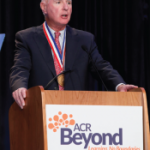Despite our best efforts and modern interventions, we still have patients in the intensive care unit with organ failure. Although renal failure can be mitigated by dialysis, patients with cardiac or respiratory failure secondary to active autoimmune disease raise difficult clinical and ethical issues. Two recent cases, both with organ failure, led us to examine…








